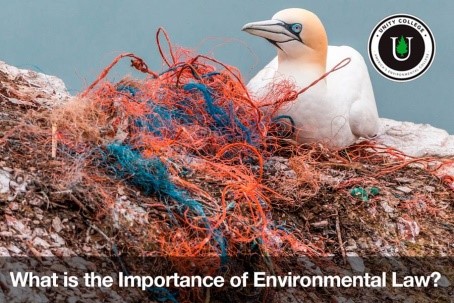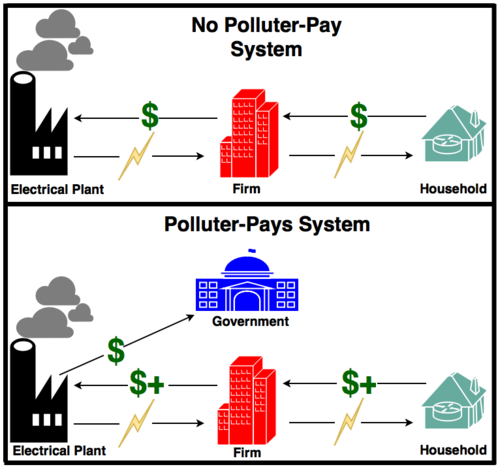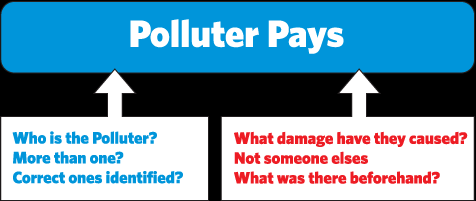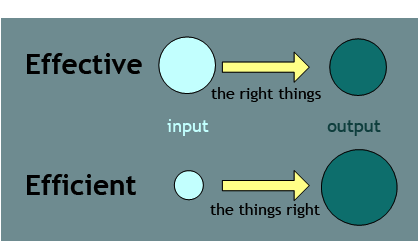The National Environmental Management Act No. 107 of 1998 (NEMA) is intended to promote cooperative governance and ensure that the rights of people are upheld, but also recognise the necessity of economic development.
The purpose of environmental law is to protect and preserve the environment. There are two main subjects of environmental laws, control of pollution, and the conservation and management of land. Both sections of environmental law protect land, air, water, and soil.
Environmental law works to protect land, air, water, and soil. Negligence of these laws results in various punishments like fines, community service, and in some extreme cases, jail time. Without these environmental laws, the government would not be able to punish those who treat the environment poorly.

Click here to view an explanation of human, environmental and biological impact.
Principles of Environmental Management
These are some guiding principles of environmental management. These principles are helpful in environmental decision-making.
Polluter Pays Principle (PPP)

The polluter pays principle is the commonly accepted practice that those who produce pollution should bear the costs of managing it to prevent damage to human health or the environment.
The principle to be used for allocating costs of pollution prevention and control measures to encourage rational use of scarce environmental resources and to avoid distortions in international trade and investment is the so-called Polluter Pays Principle. The essential concern of this principle is that polluters should bear the costs of abatement without subsidy.

5 Major Outdoor Air Pollutants:
- Ozone (O3)
- Nitrogen Oxides (NOx)
- Carbon Monoxide (CO)
- Sulphur Dioxide (SO2)
- Particulate Matter (PM10 and PM2.5)2.
The User Pays Principle (UPP)
The user-pays principle is the variation of the polluter-pays principle that calls upon the user of a natural resource to bear the cost of running down natural capital. The principle states that all resource users should pay for the full long-run marginal cost of the use of a resource and related services, including any associated treatment costs. It is applied when resources are being used and consumed.
The Precautionary Principle (PP)
The main objective of the precautionary principle is to ensure that a substance or activity posing a threat to the environment is prevented from adversely affecting the environment, even if there is no conclusive scientific proof of linking that particular substance or activity to environmental damage. The words ‘substance’ and ‘activity’ are the result of human intervention.
Click here to view an explanation of the precautionary principle.
Principle of Effectiveness and Efficiency
It is essential that efficiency of resource use may also be accomplished by the use of policy instruments that create incentives to minimize wasteful use. It also applies to various issues of environmental governance by streaming processes and procedures in order to minimize environmental costs.

The Principle of Responsibility
It is the responsibility of all persons, corporations and states to maintain the ecological processes. Further, access to environmental resources carries attendant responsibilities to use them in an ecological sustainable economically efficient and socially fair manner.
The Principle of Participation
It is the duty of all persons to participate in collectively environmental decision-making activities. Some participation areas are related to the use of trees and other plants, minerals, soils, fish and wildlife for purposes such as materials and food as well as for consumptive and non-consumptive recreation. The second issue concerns solid waste i.e. garbage, construction and demolition materials and chemically hazardous waste etc. The third issue of participation is related to pollution-generating activities.
The Principle of Proportionality
The principle of proportionality is based on the concept of balance. A balance is to maintain between the economic development on the one hand and environmental protection on the other hand. It cannot be disputed that no development is possible without some adverse effects on ecology. Therefore, it is essential to adjust the interest of the people as well as the necessity to maintain the environment. Moreover, comparative hardships have to be balanced and benefits to a larger section of the people have to be maintained.
Air Quality Act No. 39 of 2004
NEM: AQA was enacted to manage and prevent pollution. Section 3 of NEM: AQA places a general duty on the state to protect and enhance the quality of air as part of its obligations under section 24 of the Constitution. The Atmospheric Pollution and Prevention Act 1995 continue to apply to offences committed before the National Environmental Laws Amendment Act 2009 came into effect.
The Minister of Environmental Affairs published a list of activities that result in atmospheric emissions which they reasonably believe may have a significant detrimental effect on the environment. Government Notice 893 of 22 November 2013 provides for minimum emission standards for the following categories:

Anyone who undertakes any of the listed activities under these categories, or any other list applicable to a particular province, must obtain an atmospheric emissions licence (AEL) (section 22, NEM: AQA). In most cases, the AEL process is conducted in conjunction with the environmental impact assessment (EIA) process. Therefore, an applicant must apply for both an AEL and environmental authorisation under NEMA.